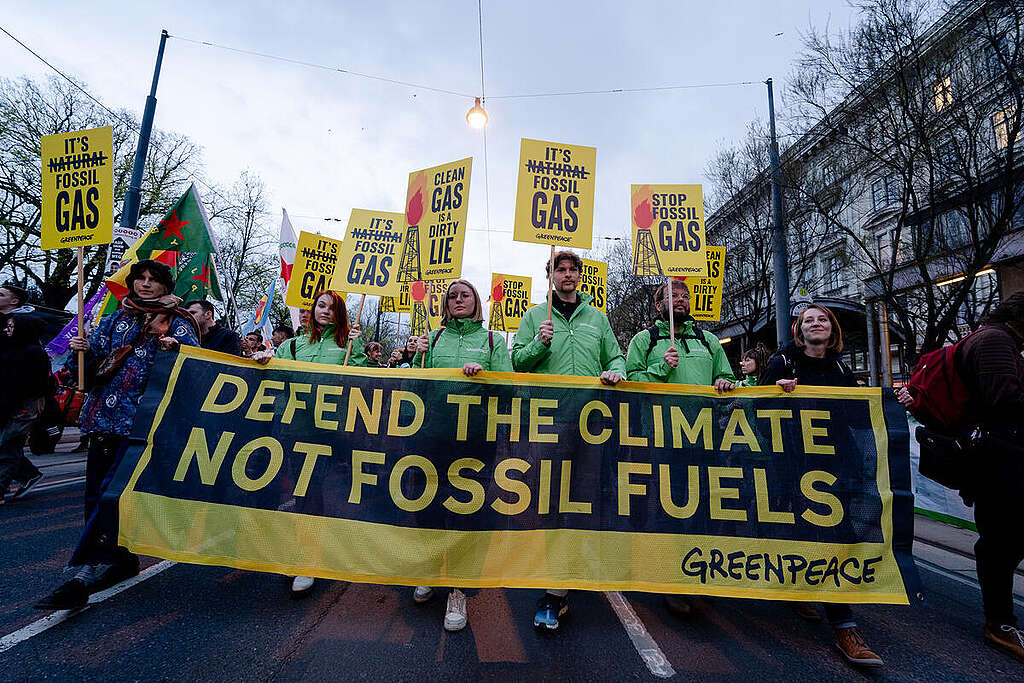Just because natural gas has the word 'natural' in it, doesn't mean that it is safe for the planet, people and the climate. Let's bust the myth: natural gas = fossil gas. Fossil gas is a dirty fossil fuel just like oil and coal. And just like any other fossil fuel, it puts our safety at risk. Here is why…
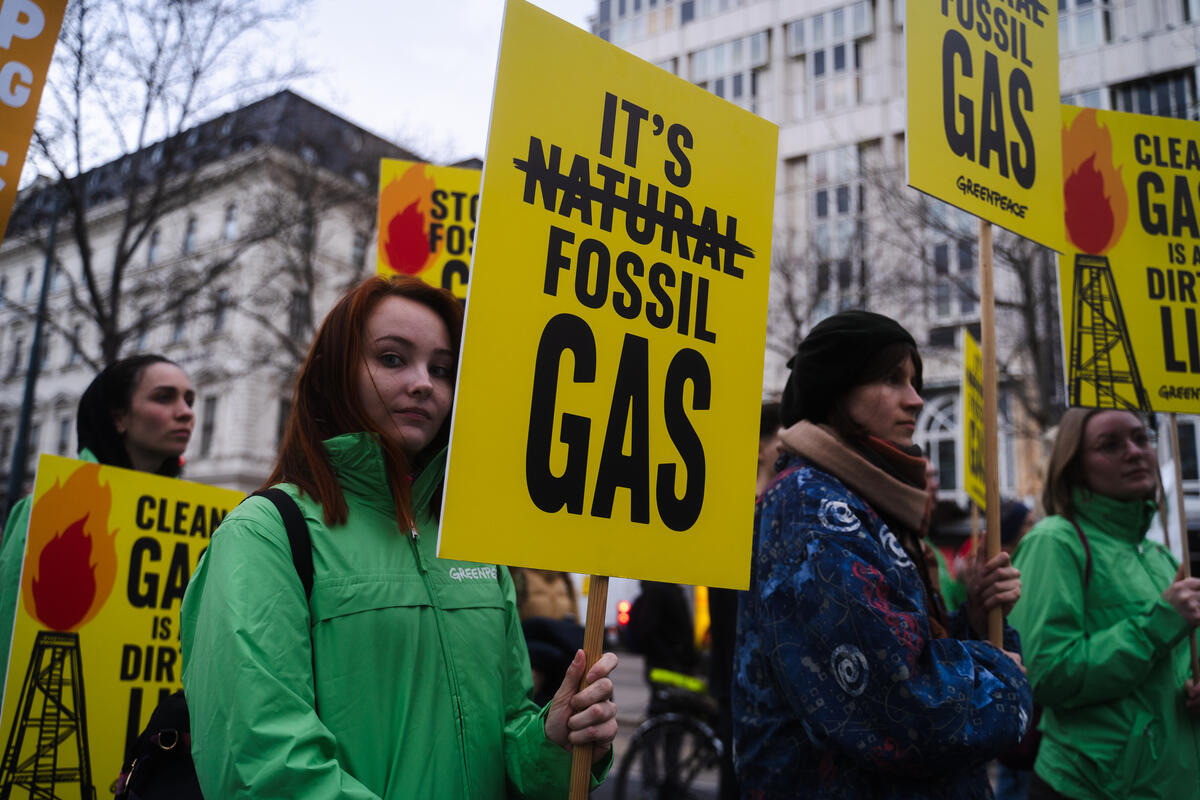
1. Fossil gas is a massive contributor to the climate crisis
Fossil gas consists mainly of methane, a greenhouse gas 84 times more powerful than CO2 over a 20-year period. When burned to produce energy, fossil gas emits CO2 – another greenhouse gas that drives climate chaos. Gas is already responsible for 22% of global greenhouse gas emissions from fossil fuel combustion.
To add to that, fossil gas is prone to leakage: methane leaks from wells, pipelines, LNG tankers and terminals or refineries are so common and massive that scientists say they pose "a grave threat to humanity". Taking into account methane leaks, research has even concluded that fossil gas could be just as bad for the climate as coal, and sometimes even worse.
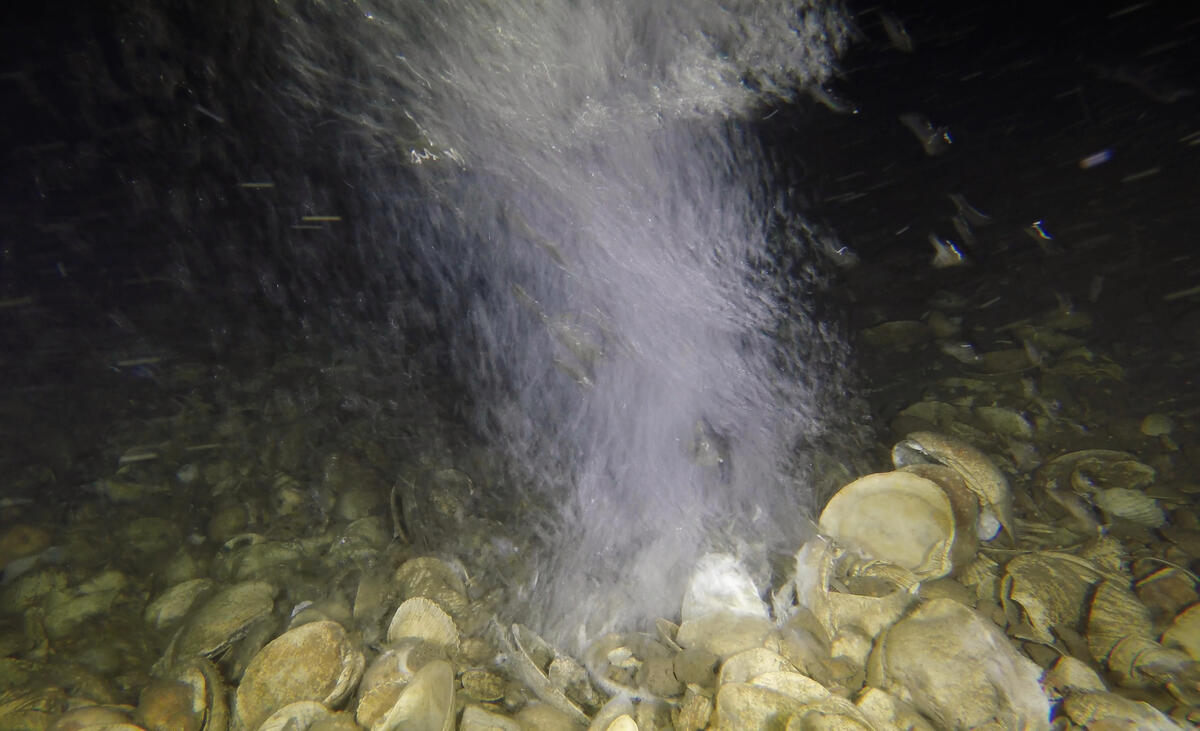
2. Fossil gas drives inequality, violence and conflicts
While the energy industry made record profits from the massive rise in gas prices in 2022, citizens around the world suffered much higher costs for heating and electricity, and persistent inflation that pushed up the prices of basic goods and services. High and volatile gas prices, especially when combined with inadequate housing, trap people in poverty and energy poverty.
Gas also fuels conflicts, giving geopolitical advantages to resource-rich countries at the expense of nations that need gas imports. And fossil fuel extraction is responsible for tremendous social impacts and human rights violations in Global Majority countries and regions belonging to Indigenous Peoples, and can be linked to violence, corruption or resettlement and displacement of people by force.
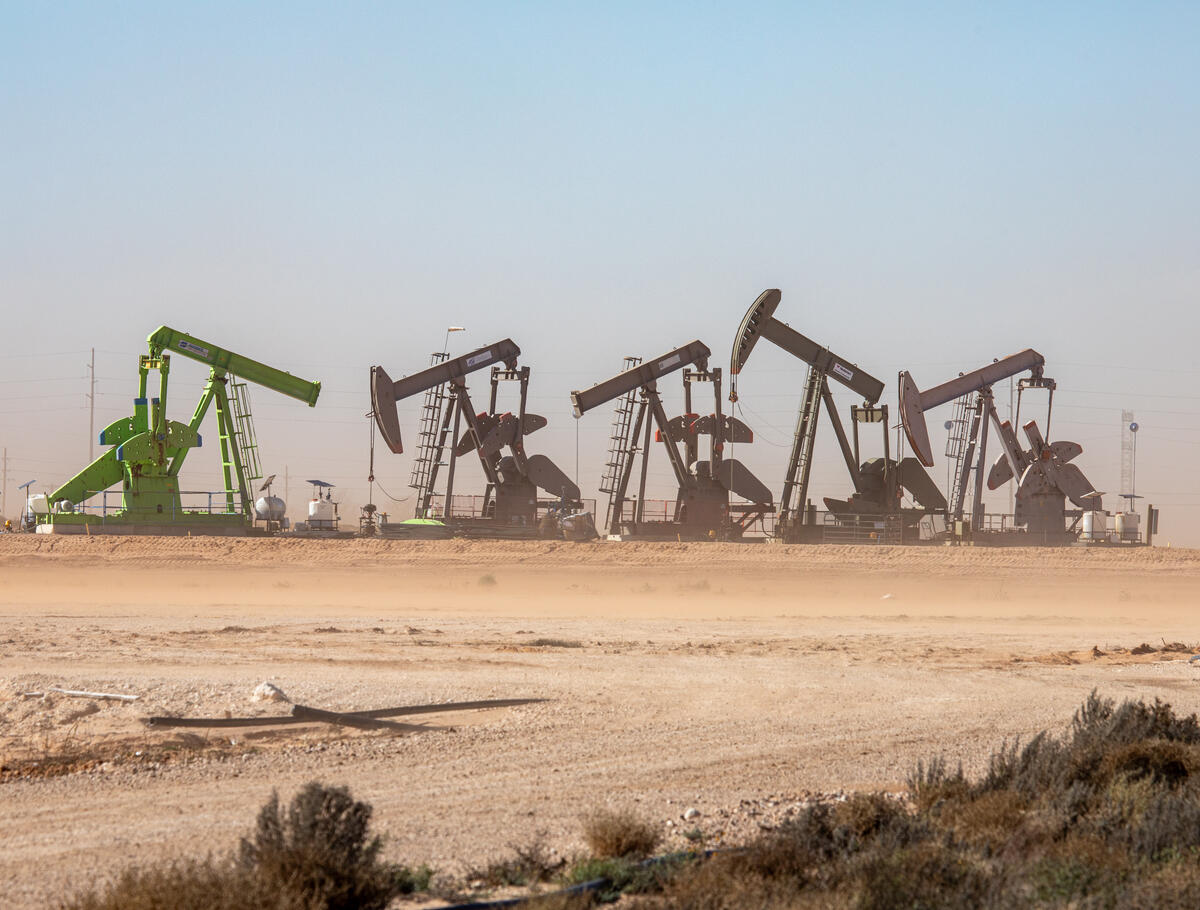
3. Fossil gas extraction infrastructure destroys entire areas and its inhabitants
Gas exploration and gas infrastructure such as platforms, pipelines, LNG terminals or refineries are particularly damaging to nature: deforestation, release of harmful pollutants, pollution of soil, wetlands or seabeds, noise from seismic surveys that endanger whales and dolphins… These devastating impacts obviously exacerbate the biodiversity crisis, but also the climate crisis even further by damaging already fragile ecosystems that would otherwise store CO2.
Not to mention fracking, a controversial method of extracting gas that is particularly polluting and harmful, possibly leading to low birth weights, asthma, lymphoma and other diseases.
4. Fossil gas pollution is responsible for deaths and diseases
Burning fossil gas emits nitrogen oxides (NOx) and other toxins responsible for air pollution. Exposure to elevated levels of these pollutants can lead to adverse health effects, including cardiovascular disease and cancer. Recent estimates put the number of deaths from fossil fuel air pollution at 5 million per year. At home, recent studies suggest that gas stoves put people at greater risk of respiratory disease than previously thought.
Fossil-fuelled global warming also causes death and disease. An estimated 360,000 people could die prematurely before the end of the century as a result of extreme temperatures due to global warming caused by the greenhouse gas emissions of nine major European oil and gas companies in 2022 alone.
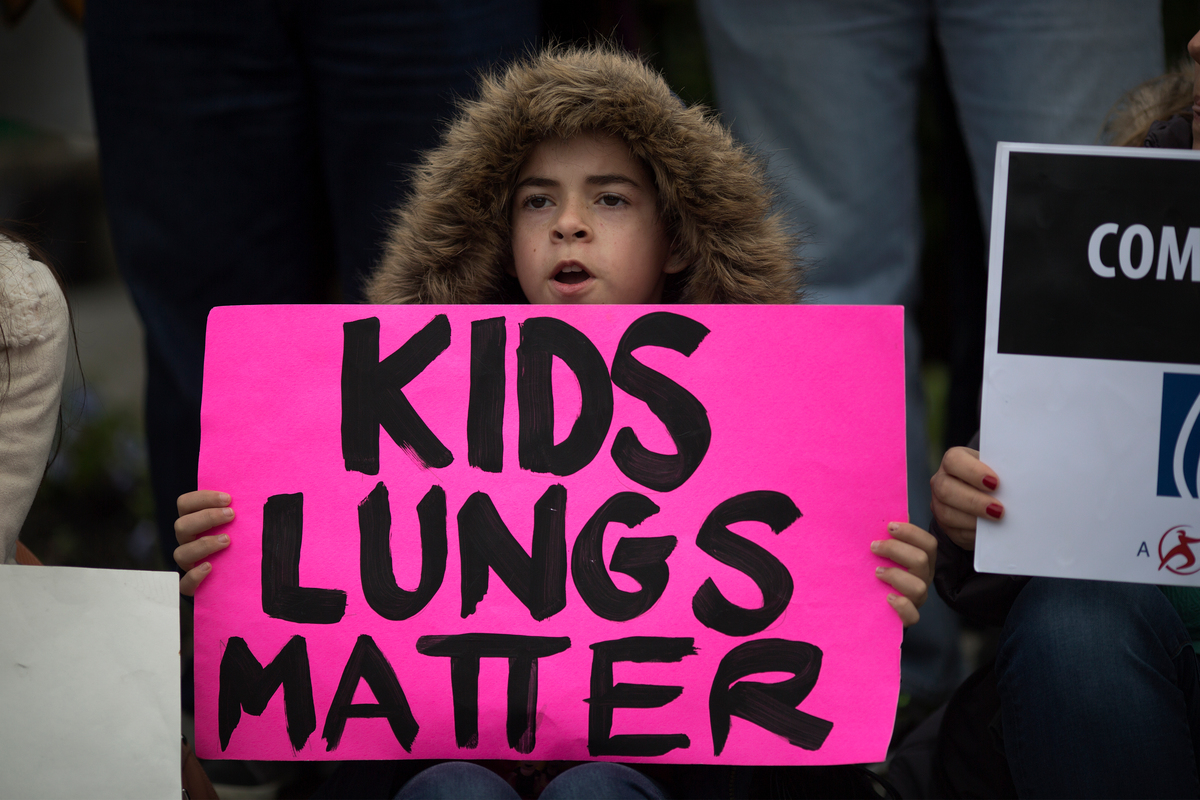
5. Fossil gas is an intrinsically dangerous business
Explosions, fires and earthquakes are common events in the gas business, at every step of the supply chain. In the US, a gas pipeline accident occurs every 40 hours. History is littered with disasters such as San Juanico in Mexico, or Ufa in the former Soviet Union.
More recently, the Netherlands has shut down an onshore gas field for the safety of the local population: chronic earthquakes caused by the field were damaging thousands of homes and buildings.
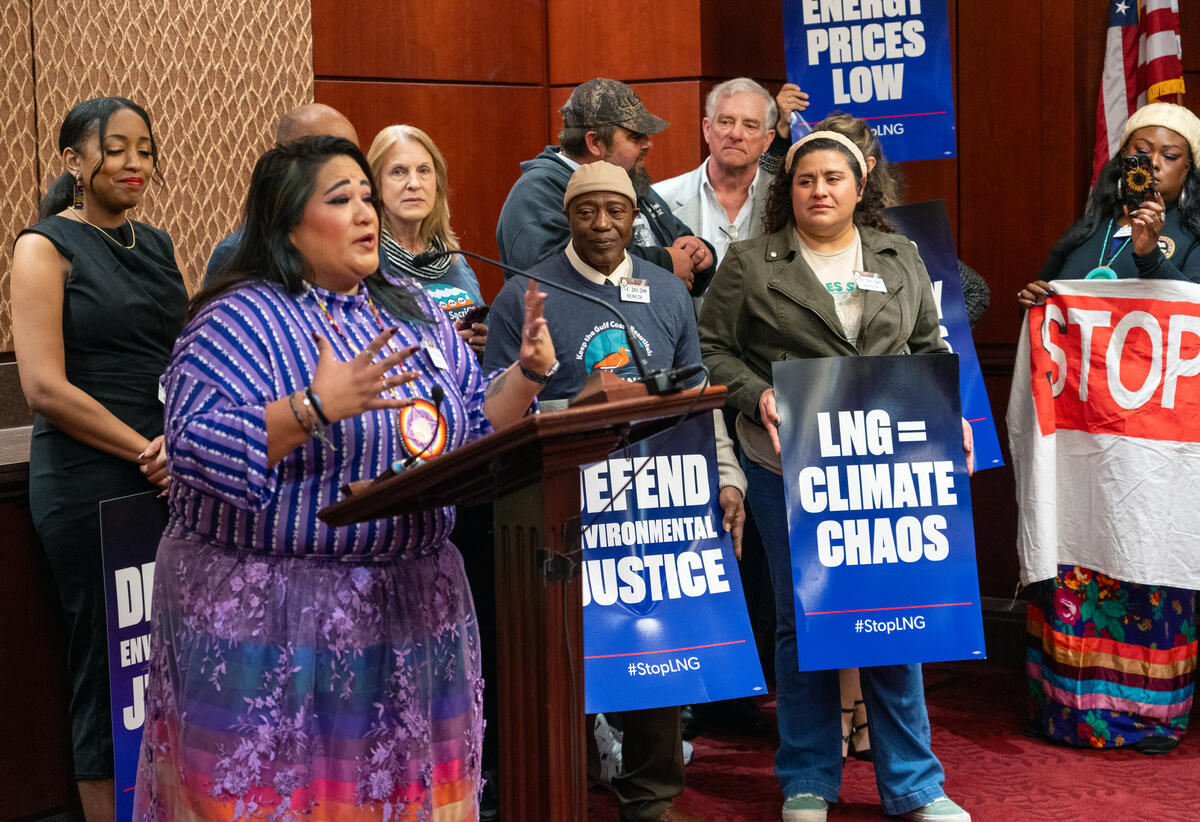
Let's phase out fossil gas and fossil fuels
Today, fossil gas accounts for almost a quarter of all energy consumption worldwide. It is mainly used for cooking, heating buildings, power generation and in the industrial sector. Despite what fossil fuels companies would have us believe, gas puts our safety at risk by driving inequalities and violence, fuelling climate chaos, increasing health problems and accidents, destroying our precious biodiversity and polluting our environment.
But the good news is: 100% renewable energy systems exist and work. Gas can be phased out by replacing it with renewables through electrification, reducing overall energy demand through efficiency and sufficiency, and developing energy storage and demand flexibility. It's time to speed up the transition. It is a matter of safety and justice for present and future generations.
Demand the European Union to treat the climate and ecological emergency like the existential crisis it is. Our lives depend on it.
Lisa Göldner is the Lead Campaigner of Greenpeace's Fossil Free Future, based in Germany.

